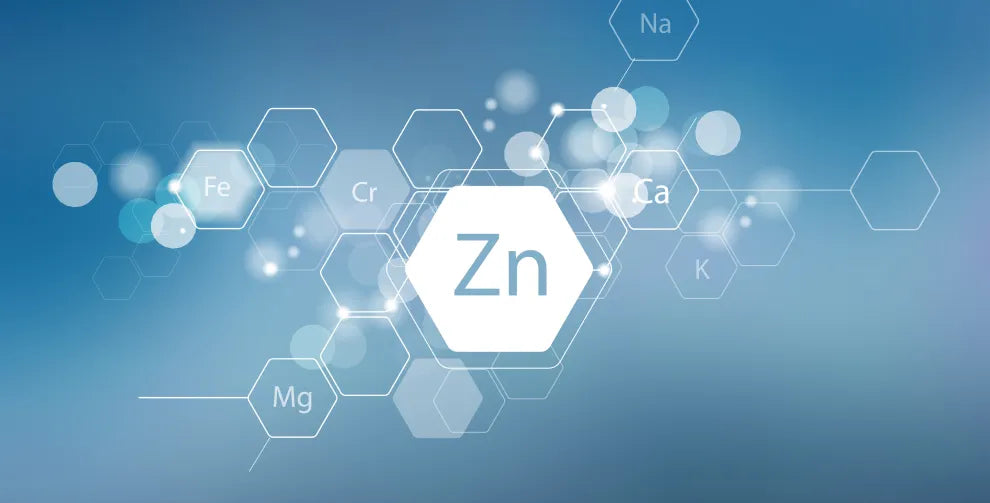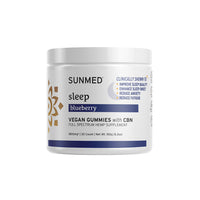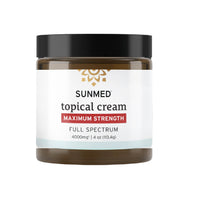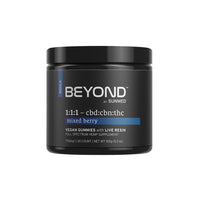Zinc supplements: Benefits, side effects, and dosage

Reviewed by | Dr. Caley Scott, ND
Zinc is an essential mineral that plays a big role in keeping our bodies healthy and functioning well. It supports all sorts of biological functions — from our immune function to helping us feel mentally balanced. This tiny but mighty nutrient is a true powerhouse, but many of us may not be getting enough of it.
Whether you're looking to boost your immune system, improve skin health, or ensure you're meeting your nutritional needs, getting enough zinc is crucial for overall health and wellness.
Let’s dive into why zinc is so important, the benefits of zinc supplements, and how you can make sure you're getting enough of this essential micronutrient.
What is zinc?
Zinc is a trace mineral that our bodies need in small amounts, but its impact is huge. Minerals, including zinc, are essential nutrients that support a variety of bodily functions. Zinc is found in every cell and is essential for various bodily functions.
Without enough zinc, our sense of smell and taste can diminish, and our body's ability to heal and grow can be impaired. Zinc is also crucial for DNA synthesis, cell division, and protein production. So, keeping your zinc levels in check is pretty important for staying healthy.* Whether you're focusing on immune support or general wellness, zinc is an essential mineral your body can't do without.
What are the benefits of zinc supplements?
Zinc supplements can be a game-changer for those who struggle to get enough zinc from their diet alone. Here’s how:
Immune system support
One of the most well-known benefits of zinc supplements is their ability to support the immune system.* Zinc helps activate T-cells, which are crucial for the immune response. Studies have shown that zinc might be able to help with the common cold, making it a popular choice during flu season.*
Skin health
Zinc is a powerhouse when it comes to maintaining healthy skin. It helps with wound healing by promoting collagen synthesis.* This is why you’ll often find zinc oxide in creams and ointments for diaper rash and other skin irritations. If you struggle with breakouts or other skin concerns, a zinc supplement might help improve your skin’s appearance.*
Additionally, zinc's antioxidant properties protect skin cells from oxidative stress, which can contribute to premature aging and skin damage.*
This essential mineral can play a vital role in keeping your skin healthy and radiant. Plus, zinc can help regulate oil production in the skin, further aiding in the prevention of acne and other skin issues.*
DNA synthesis and cell division
Zinc plays a crucial role in DNA synthesis and cell division, making it key for growth and development. This trace mineral is involved in the creation and repair of DNA, ensuring that our cells function properly and replicate accurately. Without sufficient zinc, these processes can be compromised, leading to various health issues.
Zinc supplements can support healthy growth in children and adolescents and help maintain cellular health in adults. By promoting efficient cell division, zinc helps in wound healing, tissue repair, and overall bodily maintenance. It’s a key player in keeping our bodies running smoothly, from the inside out.
Eye health
Zinc is also vital for maintaining good eye health. Zinc helps transport vitamin A from the liver to the retina, producing melanin, a protective pigment in the eyes.*
By supporting healthy zinc levels, you can help reduce the risk of AMD and other vision problems. Regular intake of zinc, whether through diet or supplements, can help keep your eyes sharp and your vision clear, protecting against oxidative stress that can damage the retina over time.*
Reproductive wellness
Zinc is essential for reproductive health in both men and women. In men, zinc plays a role in the production of testosterone and overall sperm health. It supports sperm production, motility, and overall reproductive function. In women, zinc contributes to hormone regulation and reproductive organ health.
By maintaining sufficient zinc intake, you’re supporting your body’s natural reproductive processes and overall sexual wellness. Whether you’re planning a family or just aiming to maintain reproductive health, zinc is a vital nutrient to include in your wellness routine.
Cognitive function
Zinc is more than just a physical health booster; it’s also crucial for cognitive function. This essential mineral supports brain health by aiding in neurotransmitter function and neuronal communication. Adequate zinc levels are linked to improved memory, learning, and overall mental performance.
Zinc can help maintain mental clarity and focus, making it a valuable nutrient for students, professionals, and anyone looking to stay sharp and mentally agile. By supporting brain function, zinc can help you stay on top of your game mentally.
Incorporating zinc into your diet can be a simple yet effective way to boost cognitive health and ensure your brain is functioning at its best.
Emotional well-being
Zinc plays a key role in emotional well-being, helping to regulate mood and reduce feelings of tension. This essential mineral is involved in neurotransmitter function, which impacts how we feel emotionally.
By working with the neurotransmitters that control emotion, zinc can help support a balanced outlook, ease feelings of tension, and help promote a sense of stability. This makes zinc a valuable nutrient for anyone looking to support their mental health.
Including zinc in your diet is a simple way to help manage stress and maintain a positive outlook, contributing to overall emotional balance and well-being.
What foods are rich in zinc?
Animal sources rich in zinc include meat, seafood (especially oysters), and dairy products. Plant-based sources include legumes, nuts, seeds, and whole grains. For vegetarians or those looking to boost their zinc intake, foods like chickpeas, lentils, pumpkin seeds, and cashews are excellent choices.
To enhance zinc intake through your diet, try combining zinc-rich foods with other nutrients that improve absorption. For example, pairing zinc with vitamin C-rich foods like bell peppers, strawberries, or citrus fruits can boost absorption.
Avoid consuming zinc with high-calcium foods or supplements, as calcium can interfere with zinc absorption. By making these simple dietary adjustments, you can effectively increase your zinc intake and support your overall health.
How to incorporate zinc into your wellness routine
Incorporating zinc into your wellness routine can be a game-changer for your overall health. You can get zinc from both your diet and supplements, and each has its own benefits.
Eating zinc-rich foods like meat, seafood, beans, and nuts provides a natural and balanced way to get this essential mineral. However, if you have a zinc deficiency or specific health needs, supplements can be a more effective option.
Zinc supplements come in various forms, such as zinc gluconate, zinc acetate, zinc sulfate, and zinc picolinate, each with different bioavailability and absorption rates.
Zinc citrate and zinc picolinate — a form of zinc that is bound to the organic acid picolinic acid, which is naturally produced in the body from the amino acid L-tryptophan — are often preferred due to their high absorption rates, making them more effective for boosting zinc levels.
For a daily wellness boost, you might consider adding our Supergreens Daily Gummies, which are designed to support overall health.
Our Libido Boost gummies also contain zinc picolinate to help support reproductive health and boost emotional well-being, which can in turn enhance feelings of pleasure. These gummies are not only boost libido but are also a tasty way to ensure you’re getting your daily dose of zinc.
What is the recommended amount of zinc?
The recommended dietary allowances (RDA) for zinc vary based on age, gender, and health conditions.
For adult men, the RDA is 11 mg per day, while for adult women, it's 8 mg per day. Pregnant and breastfeeding women have higher zinc requirements, at 11-12 mg per day, to support both their own health and the health of their baby. Children and teenagers also have varying zinc needs, ranging from 2-11 mg per day depending on their age.
Several factors can influence your zinc requirements, including your diet, lifestyle, and any underlying health conditions. For example, vegetarians might need up to 50% more zinc than non-vegetarians due to lower bioavailability from plant-based foods.
Always consult with a healthcare professional to determine the appropriate dosage for your specific needs, and remember to adjust your intake if your dietary habits or health status change.
Who can benefit from taking zinc supplements?
Zinc supplements can be beneficial for a variety of people, especially those who may not get enough zinc through their diet. Individuals with zinc deficiency are prime candidates for supplementation.
Symptoms of zinc deficiency include hair loss, diarrhea, delayed wound healing, and frequent infections. Populations at higher risk include vegetarians, pregnant and breastfeeding women, and the elderly, as their dietary intake or absorption might be lower.
Additionally, athletes and individuals with high physical activity levels might need extra zinc to support recovery and immune function.
By ensuring you have adequate zinc levels, you can support your immune system, promote healthy skin, and enhance overall wellness.
Are there any risks to taking zinc supplements?
While zinc is an essential nutrient for our well-being, occasional side effects can occur, especially when taken in large doses. Common side effects of taking too much zinc include nausea, vomiting, and digestive issues.
To minimize these side effects, it’s best to take zinc supplements with food. Long-term use of high doses of zinc can lead to more serious risks like immune suppression and copper deficiency. Symptoms of zinc toxicity include nausea, loss of appetite, stomach cramps, and headaches.
There’s also the potential for drug interactions with other medications or dietary supplements, such as antibiotics or diuretics, which can affect how zinc is absorbed and utilized in the body. Always follow the suggested serving sizes on supplements and avoid exceeding the recommended daily dose.
Consulting with a healthcare professional before starting a new supplement is always a good idea to ensure it is safe for you, considering your specific health conditions and medications.
How to take zinc supplements
Taking zinc supplements effectively is key to reaping their full benefits. It’s best to take zinc supplements with food to enhance absorption and reduce the risk of stomach upset.
Pairing zinc with other nutrients like vitamin C can further boost its absorption. Always follow the directions and serving size recommendations on the product label to avoid taking too much zinc, which can lead to side effects like nausea or a metallic taste.
For instance, Sunmed's supplements come with clear instructions to ensure you're getting the right amount. It's important to note that the timing of your intake can also impact absorption. Taking zinc at the same time each day can help maintain consistent levels in your body, ensuring you get the most out of your supplement.
Incorporating these best practices into your routine will help you maximize the benefits of zinc supplements and support your overall health.
The bottom line
Zinc is a powerful ally in supporting immune function, mental well-being, sexual health, and so much more. By incorporating zinc-rich foods into your diet or taking supplements as needed, you can ensure you’re getting enough of this essential mineral.
Remember to follow recommended dosages and consult healthcare professionals before starting any supplement regimen.
For those interested in boosting their reproductive health, our new Libido Gummies are a great source of zinc, combined with other natural ingredients like Korean Red Ginseng and Horny Goat Weed. Explore our full range of wellness supplements to find the perfect fit for your needs and take a step towards a healthier, more vibrant life.
*This statement has not been evaluated by the Food and Drug Administration. This product is not intended to diagnose, treat, cure, or prevent any disease.
Sources:
T-lymphocytes: a target for stimulatory and inhibitory effects of zinc ions | PMC
Zinc for the common cold—not if, but when | PMC
Zinc and skin health: overview of physiology and pharmacology | PMC
The role of zinc in reproduction | Biological Trace Element Research













